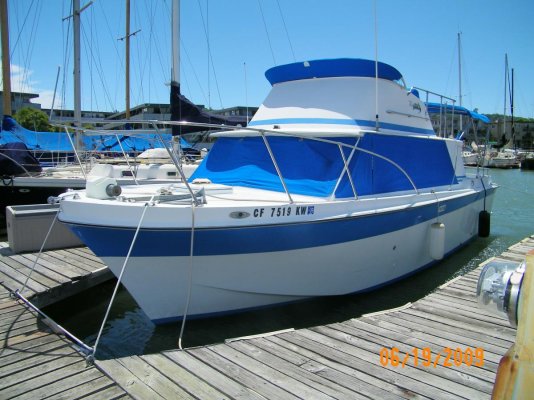Only some of the guys with semi-experience are lost backing a boat...the others have moved on to that different level...they instinctively adapt to the difference...that's what I'm saying.
No different than any job or hobby...you only get there with either a huge commitment or time. Some learn much faster and have better experiences but it still just doesn't "happen".
You just get to a certain point being good at something...but usually in your own "domain".... then at some point you down the line you have the experience to clearly get past that first plateau.
Thus the point of the OP and the point it was making.
Me – I’ve been lucky enough to have been indoctrinated into a life-long course to learn boating... it started when I was in diapers to my latter 20's. Goes on still today! Currently 6 + decades of actively doing or thinking about boat handling/study taint all that bad! Boating, and all its nuances, is a course/life-style that has a beginning (and maybe even an extended multiyear break - such as I took) but, it needs no end! - LOL

In all honesty... I had a couple decades in the center of my years where not much boat action was involved... however, my original boat handling decades, that included many types and size boats, were firmly implanted in me wittle bwain. When I reentered pleasure-boat-world on a regular basis the age-old boat trainings and experiences came flooding (pun intended) back to my fingertips!

For new adult boaters, especially those with little to no boat handling background or boating experience, I recommend an intense crash course (from several days to a couple weeks, or more) in boat handling (under most if not all conditions) with a very experienced boat handler as teacher; licensed captain or not. I also feel you should have this course taught in the general size and model/type of boat you are seeking to purchase as well as in the general type of area you plan to do your boating. Therefore, if you are a complete newbie your first task is to learn what type boat you are going to begin your pleasure cruising career on and where that boating will take place. Make sure your better half gets into the program too, if at all possible. Ya know the old sayen... When Momma’s Happy, Everybody’s Happy!
IMHO – Pleasure boating world is wide open and fully ready for new members to “come on aboard”. Reasons abound: One is that there are many affordable boats still in good condition which are languishing at docks needing new owners. For sale signs/ads are everyplace. Craigslist and Yachtworld on the net are good places to look. Check out brokers too and walk marina docks speaking with boat owners... you’ll be surprised what you’ll find and learn. Secondly, there are many cruising areas and harbors with plenty of room available to take on new boat lovers! And, thirdly... Cause You’ll Love the Lifestyle!

Happy Boating Daze - Art



